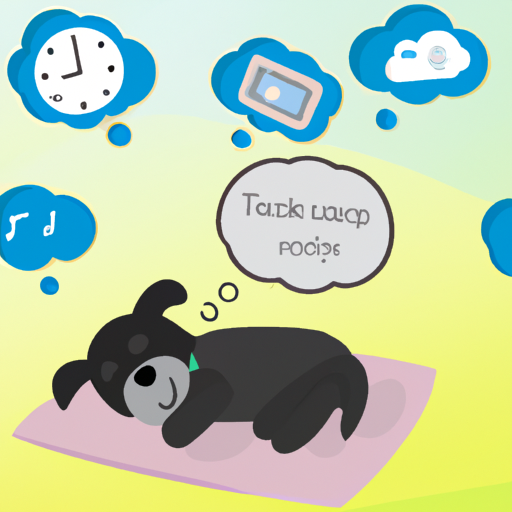As a dog caregiver, you’ve probably found yourself wondering about your dog’s sleep habits. How many hours are dogs supposed to sleep? Is your dog sleeping too much, or maybe not enough? Understanding the sleep habits of our canine companions is important to ensure we’re providing them with the care they need.
Table of Contents
1. Understanding Dog Sleep Habits
2. Factors Affecting Dog Sleep Patterns
3. Breed Specific Sleep Needs
4. Signs of Sleep Disorders in Dogs
5. Frequently Asked Questions
Key Takeaways
- Dogs typically sleep between 12 to 14 hours a day.
- Puppies and older dogs tend to sleep more than adult dogs.
- Factors like breed, activity level, and health can affect a dog’s sleep pattern.
- Sudden changes in a dog’s sleep pattern can signal health problems.
Understanding Dog Sleep Habits
To answer the question of how many hours are dogs supposed to sleep, it’s important to understand that dogs, much like humans, have different sleep needs at different stages of their lives. On average, most dogs will sleep between 12 to 14 hours a day. However, puppies and older dogs tend to sleep more, often up to 18 to 20 hours a day.
Unlike humans who generally have one long sleep period, dogs have a different sleep pattern. They sleep in multiple short bursts throughout the day and night. This pattern originated from their wild ancestors, who needed to be alert for potential dangers or hunting opportunities at any time.
Factors Affecting Dog Sleep Patterns
There are several factors that can affect a dog’s sleeping habits. One of the most significant is the dog’s activity level. Working dogs, such as police dogs or herding dogs, often sleep less than dogs who have a more sedentary lifestyle.
Health is another crucial factor. Dogs with medical conditions may sleep more than healthy dogs. If you notice a sudden change in your dog’s sleep pattern, it’s worth a visit to the vet.
Breed can also play a role in how much sleep a dog needs. Larger breeds tend to sleep more than smaller ones. Here’s an interesting article that delves deeper into this topic.
Breed Specific Sleep Needs
Some breeds are known for being more energetic, while others are more laid back. For example, a Border Collie, known for its high energy levels and working dog status, may sleep less than a Basset Hound, a breed known for their love of a good snooze.
You can find more information about breed-specific sleep needs on websites like One Top Dog. They have a great resource on different breeds and their energy levels, which can help you understand your dog’s specific sleep needs.
Signs of Sleep Disorders in Dogs
Just like humans, dogs can suffer from sleep disorders. These can range from insomnia and sleep apnea to narcolepsy. If your dog is sleeping excessively, has difficulty falling asleep, or shows signs of distress during sleep (like whimpering or thrashing), it could be a sign of a sleep disorder.
You can learn more about sleep disorders in dogs from this informative article.
Frequently Asked Questions
1. My dog seems to be sleeping all the time. Is this normal?
If your dog is a puppy or senior, or a breed that is known to be a heavy sleeper, this could be perfectly normal. However, if you notice a sudden change in your dog’s sleep pattern, it’s best to consult with a vet.
2. My dog doesn’t seem to sleep much at all. Should I be worried?
Dogs, like people, have individual differences. If your dog seems healthy and isn’t showing signs of distress, it’s likely nothing to worry about. However, sudden changes or signs of distress should be evaluated by a vet.
3. Can I do anything to help my dog sleep better?
Yes, providing a quiet, comfortable sleep environment can help. Regular exercise and a healthy diet can also promote better sleep.
By understanding your dog’s sleep habits and needs, you can help provide them with the best care possible. Remember, if you notice any sudden changes or causes for concern, it’s always best to consult with a vet.
For more tips and insights on dog care, check out the One Top Dog blog.



